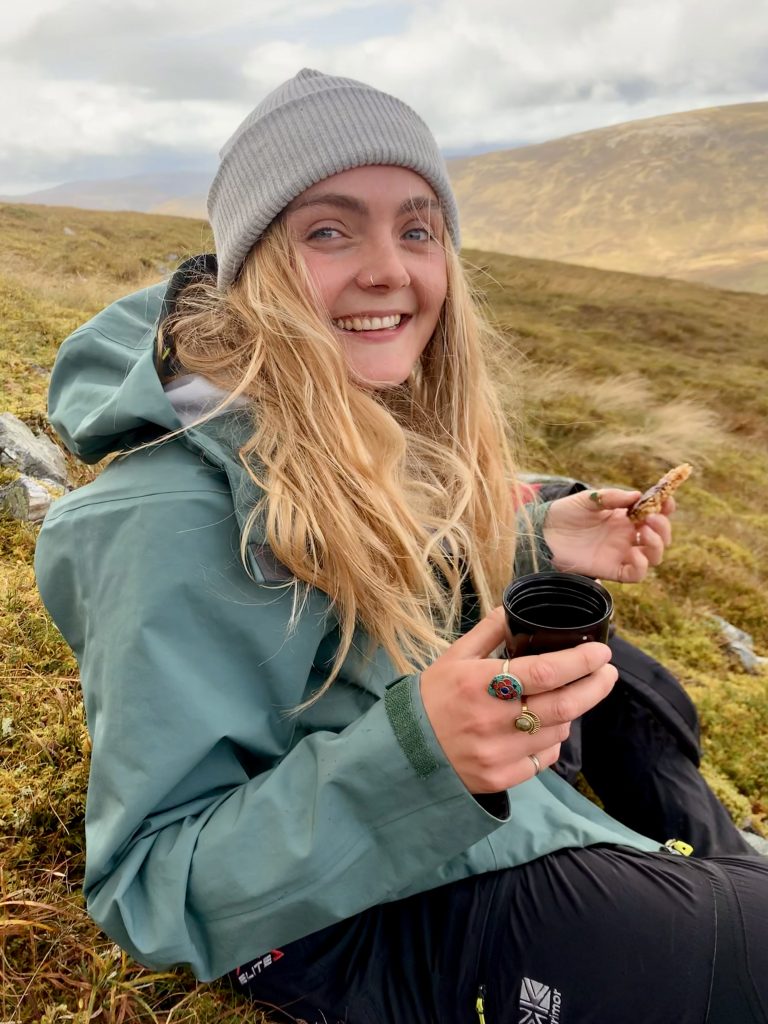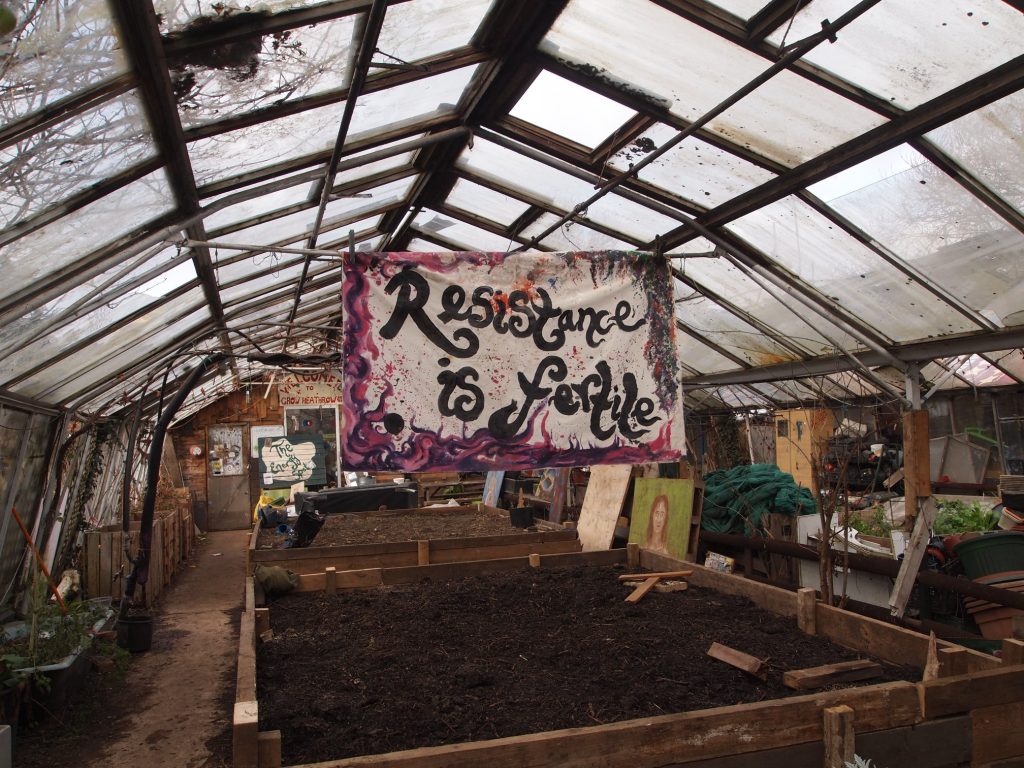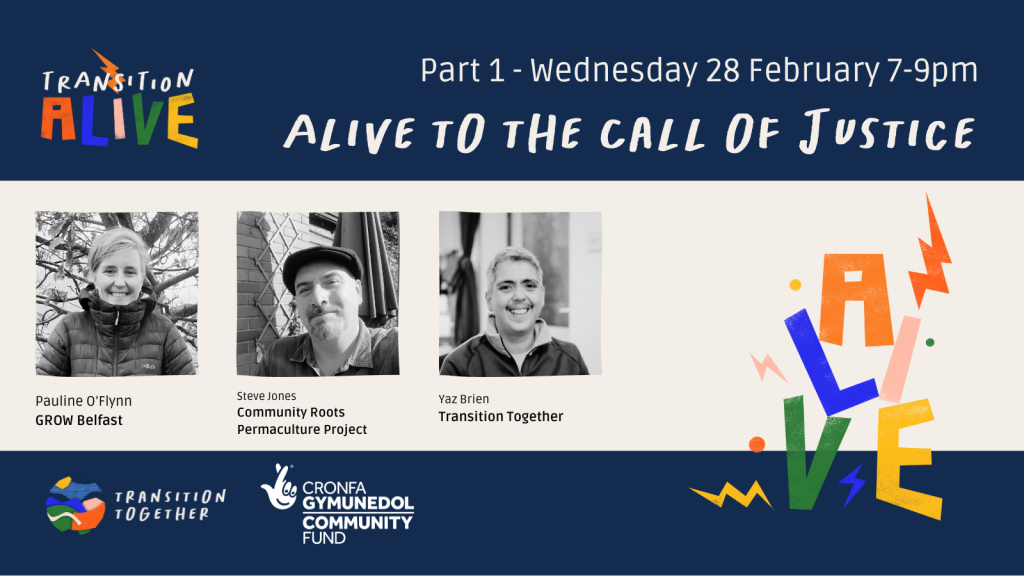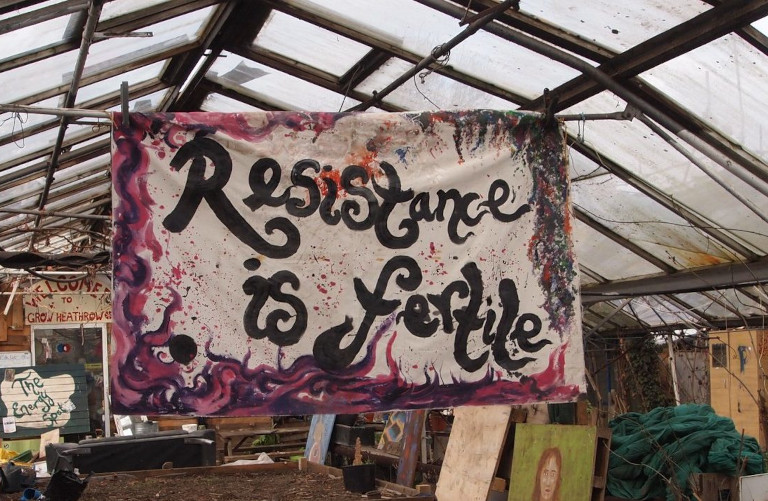What if… the future we’re building was as thriving and abundant for all people as we want it to be for nature? What if… consigning fossil fuels and environmental destruction to history could be an opportunity to do the same for injustice, inequality and oppression?
What if… the Transition movement could play a part in putting justice at the heart of the ‘transition’ we’re working towards, in our communities and beyond?

I joined the Transition Together team last October in the new role of Just Transition Lead. I’ve been exploring what Just Transition means for our movement, and how we can further embed it in the work of Transition Together and support Transition groups to do the same.
My background is mostly in climate justice spaces, specifically campaigning against oil & gas expansion in the North Sea, but I’m also passionate about the important role that movements like Transition have in building alternative futures. As I come to the end of the first stage of the project, and start looking forward, what have I found?
- We need shared definitions
Before we can do anything else, let’s build shared definitions of some of these words, to help us understand each other better. When I say Just Transition, I mean a shift to a future which prioritises equity, care and justice as well as environmental and climate regeneration. By equity I mean the fair distribution of power and resources, and when I say oppression I mean the unjust use of power, whether intentional or unintentional. But maybe these phrases mean something different to you?
As an expansive definition of Just Transition, I love this framework from Climate Justice Alliance, which explored Just Transition as a process and a practice as well as a set of principles. In this approach, it’s clear Transition groups are already doing diverse work to build a regenerative economy, and contribute towards a transition that is more just.

Source: Climate Justice Alliance
- We can’t ‘do Just Transition’ without looking internally
If we’re going to authentically explore what Just Transition means for community-led change in the Transition movement, we have to ask some honest questions about how we are showing up in this unjust world, both personally and in our groups and organisations. It can feel daunting to explore this, so, Transition Together have recently embarked on an anti-oppression process with HELD, a collective who specialise in supporting organisations like ours to build team culture which centre justice, equity and care. I’ve experienced the value in this work first hand in other groups; my hope is that the process will inform our external work and help us to embody Just Transition principles in all areas of our work.
- We have an exciting opportunity to explore what a Just Transition could look like at a community level
Just Transition as an idea emerged from North American Trade Unions and the environmental justice movement, inseparable from workers rights. To read more about the call for Just Transition from workers in polluting industries, take a look at some of the work done by organisations like Friends of the Earth Scotland, Platform and Unite.
Transition Together stands in solidarity with the important work that Trade Unions are doing, and we also have an exciting opportunity to bring Just Transition ideas, values and practices into our vision and practical work at community scale. The Transition Movement has been a powerhouse of reimagining and building a better future, and now we have a chance to put that strength towards exploring what a Just Transition can look like in varied communities around England, Wales and Northern Ireland.

A Grow Heathrow banner at their reclaimed market garden site. Read more about their story here.
- We need to be accountable and put our action where our mouth is
There are no quick fixes when it comes to this work, and careful reflection and exploration has huge value. But at a certain point, action and change are necessary – we need to be brave enough to act to strengthen our work around justice and equity. I’m a strong believer in balancing accountability with care; let’s hold our structures and practices to a high standard while practising empathy and understanding with each other as we deepen our awareness and work.
- Transition Network is already full of groups who are embodying Just Transition principles, let’s celebrate that!
I have appreciated getting to know the work already being done by groups in the Transition Network building towards a more equitable future. I had the pleasure of reading about work by groups like Community Roots and Grow Heathrow, listening to the incredible people who spoke in the Cost of Living Skillshare, and chatting with emerging groups taking part in the Launch training – all were embodying Just Transition principles in their own ways.
Side Note: Join me at our first Transition Alive session on 28 February, Alive to the call of justice. We’ll uncover more brilliant stories of Transition groups putting justice at the heart of what they do and how you can do the same where you are. Details below, and join us here.

Looking forward, there are lots of ways I can already see to grow our understanding and muscles as we work towards greater focus on justice in our work. Among them, we plan to further explore how to make our Transition Together events and communications more accessible to all – and how we can support groups to do the same. I’ll be inviting recipients of seed funding grants to come together and see how we can deepen conversations and understanding of Just Transition through their projects.
Ultimately, I want to work alongside those engaging in community-led change to see how a Just Transition approach can be so much more than a tickbox exercise. Rather than being a barrier, it’s an opportunity to strengthen and grow our work for transformation. It is an opportunity to hear and embrace the full range of life experiences and needs, so that we can work to transform the inequality and oppression in current ways of doing things into a better, thriving, resilient future for everyone.
Transition Together exists to support the Transition movement, so it’s important that this work is led by you. What would help you to explore the relevance of Just Transition in your context? Do you have a story that you think should be heard? I’d really value the opportunities to have these conversations with you. Connect with me on Vive, or get in touch by email.





